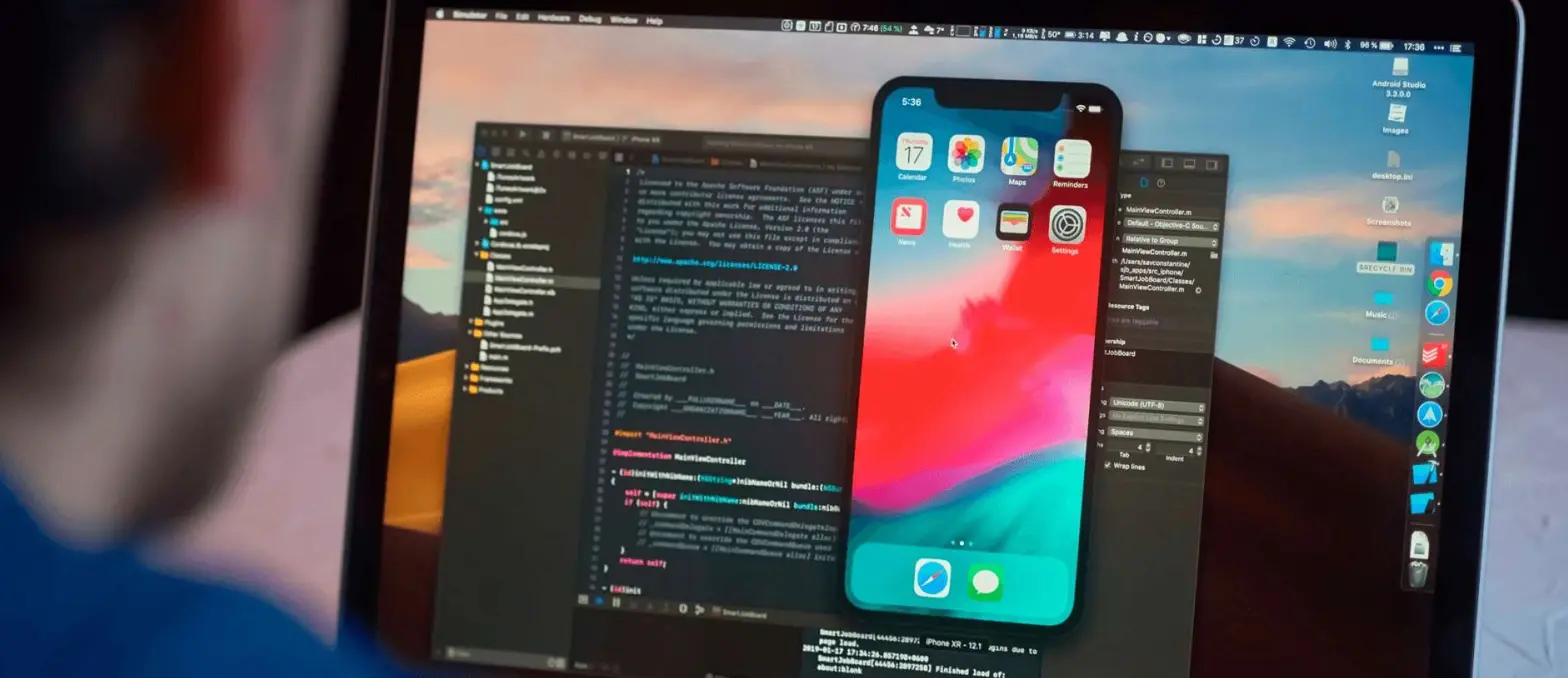AI agents are known as autonomous systems that make use of AI (Artificial Intelligence) methodologies to solve problems or perform tasks. They can make decisions by analyzing the environment, using pre-defined goals and data inputs. The role of AI agents may range from being basic chatbots to providing advanced frameworks for intelligent assistants or autonomous vehicles.
There are various categories of AI agents, like deliberative agents, which plan and execute decisions, or reactive agents, which respond to immediate queries. They are built to imitate human problem-solving and decision-making processes, and often improve via adaptation and learning, proving them to be helpful in several fields, including the hospitality industry.
Table of Contents
Benefits of Integrating AI Agents in Your Hospitality Industry
Integration of AI agents in the hospitality industry has several advantages, from improving operational efficiency, and customer experience, to revenue generation. The role of AI agents spans from the automation of everyday tasks to building customized services.
These agents assist businesses in improving overall productivity, optimizing processes, and driving customer loyalty and satisfaction. Here are some of the most popular benefits of introducing AI Agents in the hospitality industry:
-
Improved Customer Service
AI agents can answer inquiries, make bookings, offer 24/7 customer assistance, and provide customized recommendations. This helps improve guest satisfaction through accurate, instant responses and brings down wait times, allowing staff members to focus on other complex tasks.
-
Boosted Operational Efficiency
Through the automation of routine tasks such as room service orders, billing, and check-in/check-out, AI agents optimize hotel operations. AI agents in hospitality reduce manual efforts, optimize resource allocation, and minimize human error, leading to streamlined daily operations and cost savings.
-
Personalization of Guest Experience
AI agents can help in analyzing the preferences of guests via older interactions and deliver highly personalized experiences. From recommending local activities to customized room settings, AI assists in creating a more customized and comfortable stay, boosting customer loyalty.
-
Data-Driven Analysis and Insights
AI agents gather and analyze huge volumes of information, offering actionable insights into booking trends, service preferences, and guest behavior. These unique insights aid in making informed decisions, improving offerings, and forecasting demand more effectively, leading to enhanced business strategies.
-
Optimization of Revenue
AI agents in hospitality can assist with booking and pricing strategies via dynamic pricing models that adjust the rates based on factors like seasonality, competitor pricing, and demand. This maximizes overall revenue by ensuring attractive pricing and fills rooms even during peak season while maintaining fair pricing during low-demand periods.
-
Enhanced Staff Productivity
By managing routine tasks, AI agents free up time for hotel staff members. This helps them shift their focus towards high-value tasks, such as guest interactions. It eventually leads to better usage of human resources, increased employee satisfaction, and a top-quality guest experience.
Types of AI Agents in the Hospitality sector
AI agents in hospitality improve guest experiences, enhancing efficiency, and optimizing operations. From the automation of monotonous tasks to crafting personalized service offerings, AI agents are capable of meeting a wide range of operational needs. Here are some of the primary types of AI agents used in hospitality:
Conversational agents:
These AI agents make use of advanced NLP technologies to manage guest interactions. They are essential for providing round-the-clock customer assistance and inquiry resolution. The inquiries are usually related to booking details, local attractions, and amenities. The role of AI agents includes pulling off multiple interactions in parallel and providing customized responses that improve guest experience.
Task-oriented agents:
Built to achieve predefined and targeted objectives, task-oriented AI agents are meant to optimize operations like room service orders, check-ins and check-outs, and housekeeping facilities. Through the automation of repetitive tasks, these agents allow the staff to focus on complex requirements, enhancing overall operational efficiency and service quality.
Reactive agents:
These function with no retention of older interactions, and are usually utilized in hospitality for work that requires spontaneous action based on current information. Their role may involve tasks like adjusting heating, HVAC (Air Conditioning), and ventilation settings in real-time via occupancy sensors or regulating lighting and use of energy efficiently.
Deliberative agents:
A key mention among the top AI agents in hospitality, they are known for complex reasoning capabilities and can negotiate and plan to achieve certain goals. Deliberative AI agents can assist in managing complex situations, such as scheduling conference resources, optimizing staff rosters, and coordinating large events, based on predicted guest flows.
Hybrid agents:
This category of AI agents combines the skillsets of deliberative and reactive agents and offers both adaptability in planning and robustness in operations. Hybrid agents can optimize cross-departmental resource allocation and proactively manage guest relations, covering everything from front desk tasks to housekeeping and maintenance.
Model-based agents:
These come equipped with a large knowledge base that includes data and rules about the environmental dynamics of their operational area. When it comes to the role of AI agents in a model-based layout, it may include simulating diverse outcomes and scenarios based on possibilities. They help in forecasting resolutions to a wide range of issues such as data unavailability, irregularity, and more.
Goal-oriented agents:
These AI agents aim at achieving particular goals and can analyze the possible consequences of diverse actions to make streamlined decisions. In the hospitality sector, goal-oriented agents help with the management of promotional campaigns to optimize dynamic pricing strategies or enhance occupancy rates to boost revenue.
Utility-based agents:
Utility-based agents in hospitality analyze various states based on a utility function to optimize outcomes such as guest satisfaction or operational cost savings. The role of AI agents in utility-based layouts includes the management of customized marketing strategies, and dynamic pricing for different guest categories to increase profitability.
Information agents:
In the hospitality domain, information AI agents can manage, collate information, and handle several sources to enhance the decision-making process. These agents help improve market intelligence by summing up customer reviews, preferences, and feedback, which aids in customizing services and ensuring improved guest experiences.
Learning agents:
Learning agents in the hospitality industry support businesses in enhancing the performance of services based on interactions and experiences. They promote flexible strategies for inventory management, promotional activities, and customized guest interactions, based on the actionable outcomes related to guest preferences.
Knowledge-based agents:
Knowledge-based AI agents in hospitality make use of a repository of well-curated information and dynamics to provide expert advice and make informed decisions. This type of AI agent is known for its capabilities including precise analysis of market trends and guest information to craft sophisticated experiences or streamline operational strategies.
Cognitive agents:
It’s one of the AI agents that support hospitality businesses with advanced decision-making capabilities via ML (machine learning). Cognitive agents can interpret and analyze complex sets of information and improve the overall efficiency of businesses. They are perfect for roles that require analyzing customer behavior patterns or predicting market trends for strategic planning.
Key Applications of AI agents in hospitality
The technological landscapes are transforming. The role of AI agents in making real-time decisions and managing data has become important. They automate repetitive tasks and deliver sophisticated solutions to complex problems. AI systems are changing how hotels communicate with their guests. Here are some of the key applications of AI agents that are helping the hospitality sector. They help in reducing costs, providing superior services, and staying competitive.
-
Automated Check-ins and Check-outs:
AI agents can help streamline the check-in and check-out procedures. This can be done by providing self-service kiosks or mobile apps to the guests. This helps in reducing wait times and reduces human interaction. It also ensures more convenient arrivals and departures, enhancing guest satisfaction while improving operational efficiency and bringing down costs.
-
Personalized guest experience
The role of AI agents in hospitality also stretches to the analysis of guest preferences, behavior, and past stays, to offer highly customized services. From activity recommendations to room settings, these AI agents craft the guest experience on an end-to-end basis, ensuring customer satisfaction, and loyalty.
-
Conversational Room Controls
AI-fueled voice assistants allow hands-free control of temperature, lighting, entertainment, and various other amenities. Guests can regulate the room settings via natural language commands, providing a personalized, seamless, and more comfortable stay, while enhancing the ‘smart’ layout in upscale hotel rooms.
-
Dynamic Pricing
AI agents make use of real-time information analysis to streamline pricing strategies based on elements like market conditions, demand, competitor rates, and local events. The role of AI agents also includes helping hotels stay competitive, increasing revenue, and maximizing occupancy by regulating rates according to demand and market trends.
-
Multilingual Customer Support
AI agents can also offer multilingual assistance via voice assistants or chatbots, helping hotels serve an international customer base. With instant translation and support available in multiple languages, these AI agents improve the guest experience, promote communication, and minimize language barriers, in diverse customer layouts.
-
Efficient Reservation Management
AI agents can automate the handling of reservation requests, confirmations, modifications, and cancellations. By integrating AI agents in hospitality with property management systems, real-time availability can be ensured, thus preventing overbooking. It provides guests with accurate and faster booking experiences, improving operational efficiency and lowering human errors in reservation management.
-
Predictive Operations and Maintenance
AI agents can help in monitoring hotel infrastructure, and identifying issues before they arise. By forecasting when systems or equipment are possibly going to break down or malfunction, these AI agents enable proactive repairs and maintenance. This leads to a reduction in overall downtime, ensures uninterrupted services, prevents costly breakdowns, and improves guest satisfaction and operational efficiency.
Challenges of Integrating AI agents in hospitality
AI agents in hospitality offer significant advantages to businesses, but their integration often comes with multiple challenges. From data security concerns to high costs involved, potential resistance from staff, and technical issues, several obstacles need to be addressed for long-term success. Some of the most common challenges related to implementation of AI agents in the hospitality domains include:
-
High Investment Costs
Integrating AI agents usually requires considerable investment of capital in technology, training, and infrastructure. Small and mid-sized businesses may find it difficult to deal with the costs of adding AI tools, systems, and software. It’s considered among the top barriers to the adoption of innovative AI frameworks. The long-term ROI (Return on Investment) takes time, adding to the existing financial pressure.
-
Data Security and Privacy Concerns
The role of AI agents in the hospitality domain is to gather and process huge volumes of personal information. Ensuring privacy and complying with rules and regulations such as GDPR is a big challenge. Hotels need to implement solid cybersecurity measures. This is to safeguard the personal information of customers from security breaches. Any loophole could mean legal consequences and damage the brand’s reputation.
-
Staff Pushback to Change
The implementation of AI agents may also lead to resistance from the existing staff, as they may be concerned about job safety or changes in the work dynamics. Staff engagement and training are critically important to ensure a smooth transition. However, overcoming the fear related to automation and acquiring buy-in from staff may take time and effort.
-
Restricted Human Touch
Even though the role of AI agents in the hospitality sector has become essential for improving operational efficiency and customer service, the human touch holds its importance. While AI agents can manage routine functions, they often lack the emotional acumen and personal touch that guests seek in the hospitality domain. Balancing the human element with automation is important, as some guests may prefer human interaction over AI offering, particularly in sensitive situations.
-
Guest Trust and Acceptance
Some of the guests may be reluctant to communicate with AI agents, especially if they are not familiar with the technology or its effectiveness. It’s important to build trust and reliance on AI systems for successful implementation and maintenance. Precise communication related to the advantages of AI blended with transparent data policies, can help in fostering guest confidence and acceptance.
How A3Logics Can Assist You in AI agent development for your industry
A3Logics offers AI agent development services and provides expert consulting in creating customized solutions built according to the specific needs of the industry. From designing virtual assistants and chatbots to developing complex AI frameworks, we can ensure seamless integration with your legacy infrastructure. Our AI agents can help you enhance various aspects of your hospitality business including reservation systems and customer service platforms.
Our team of seasoned professionals streamlines data management, ensuring that the AI always has access to relevant and high-quality data to enhance performance. Moreover, A3Logics can also manage the updates, maintenance, and real-time optimization of the AI agents. This ensures that AI agent development services stay scalable, efficient, and aligned with the latest industry trends and guest expectations.
Future trends and innovations to watch for AI agents in hospitality
The future of AI agents in the hospitality domain is bringing groundbreaking innovations that improve both operational efficiency and guest experiences. From customized services to contactless, and seamless interactions, AI is going to continue evolving and transform how hotels cater to guests.
Collaborating with a dependable artificial intelligence development company helps you ensure that your hospitality business stays innovative, with AI-fueled support and strategies. Here are some of the key trends that everyone needs to watch out for:
-
AI-Fueled Virtual Concierges
Virtual assistants will transform, providing deeper customization options, like anticipating guest preferences via past behaviors and offering tailored experiences, all through chat and voice interfaces.
-
Hyper-Customized Experiences
AI will make use of advanced data analytics to offer highly customized services, from personalized itineraries, and in-room amenities, to room customization, improving guest loyalty and satisfaction.
-
Robotic Room Service
AI-powered robots will manage room service, offering efficient, timely, and contactless service, with autonomous navigation and enriched communication capabilities.
-
Facial Recognition for Seamless Check-ins
AI agents in hospitality will use facial recognition to enable seamless check-ins and access to rooms, boosting security and convenience, while bringing down the wait times.
Conclusion
Overall, AI agents are remodeling the hospitality industry by improving customer experiences, driving revenue, and streamlining operations. They are automating a variety of tasks including room service, reservations, and check-ins while customizing services depending on guest preferences. AI agents offer a wide range of benefits to hotels that are aiming to stay competitive in the market. With the help of unique data-driven insights and overhauled resource allocation, AI agents improve operational efficiency and customer satisfaction.
However, AI agent development comes with several challenges, including data privacy concerns, the need for staff adaptation, and high initial costs. Despite all of the hurdles, the future of AI in hospitality looks bright. With innovations such as robotic room service, virtual concierges, and customer behavior analysis. AI capabilities are all set to revolutionize the guest experience in the hospitality industry. By leveraging AI capabilities effectively, hotels can overcome related challenges while offering a seamless, customized experience. It promotes improved profitability and greater guest loyalty.
FAQs
What do you mean by AI agents in hospitality?
AI agents are known as autonomous systems fueled by AI that help in the automation of tasks. It also enhances guest experiences and improves operational efficiency in the hospitality industry. A generative AI development company can offer AI agents that can perform functions such as providing customer support, handling bookings, optimizing pricing strategies, and personalizing guest services.
What are the top categories of AI agents used in the hospitality domain?
There is a wide range of AI agents that a chatbot development company can offer a hospitality business. Some of them include the following:
- Conversational AI agents like virtual assistants and chatbots for customer support.
- Task-oriented AI agents that can automate room service requests, and manage check-ins or check-outs.
- Predictive maintenance AI agents that can monitor systems and forecast issues before they arise.
- Dynamic pricing AI agents can help in adjusting the room rates based on demand and season.
How can AI agents assist in streamlining revenue management?
AI agent development services can help with the streamlining of pricing strategies through a detailed analysis of real-time data. It includes competitor rates, seasonal trends, and overall demand. This promotes dynamic pricing, which adjusts the rates for maximum profitability and occupancy. AI agents can also assist in forecasting demand and recommend pricing strategies. This will help to boost room occupancy during the low season and avoid overpricing during peak season.
How do AI agents manage multilingual customer assistance?
A chatbot development company can develop AI agents that are programmed to deliver multilingual assistance to customers, allowing businesses to interact with global guests seamlessly. With the usage of NLP, these AI agents can offer accurate translations that facilitate interactive communication across multiple languages.








